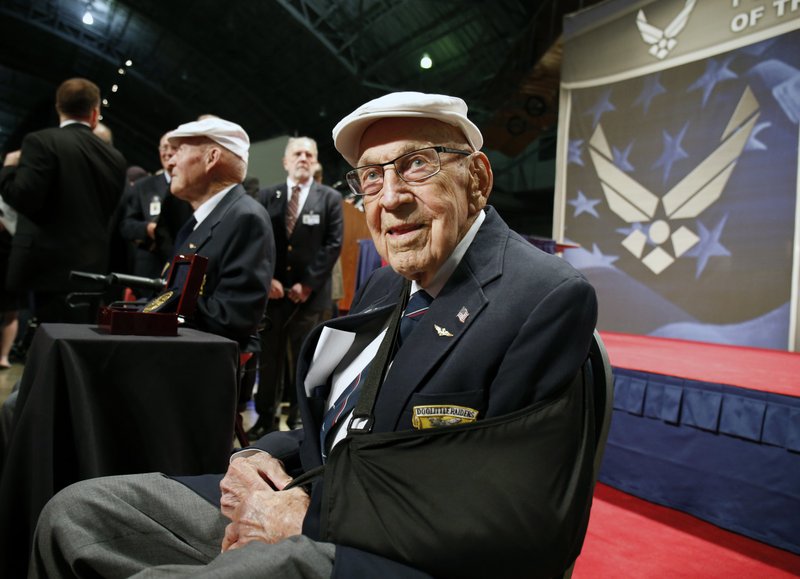DALLAS -- Retired Lt. Col. Richard "Dick" Cole, the last of the 80 Doolittle Tokyo Raiders who carried out the daring U.S. attack on Japan during World War II, died Tuesday at a military hospital in Texas. He was 103.
Robert Whetstone, a spokesman for Brooke Army Medical Center in San Antonio, confirmed Cole's death. Whetstone had no immediate additional details.
Cole, who lived in Comfort, Texas, had stayed active even in recent years, attending air shows and participating in commemorative events, including April 18, 2017, ceremonies for the raid's 75th anniversary at the National Museum of the U.S. Air Force near Dayton, Ohio.
Cole was mission commander Jimmy Doolittle's co-pilot in the attack less than five months after the December 1941 Japanese bombing of Pearl Harbor. Doolittle died in 1993.
Cole was a Dayton-area native who dreamed of being a pilot and after attending Ohio University, enlisted in the Army Air Corps in 1940. Stationed in South Carolina, he signed up as a volunteer for a secret mission that he didn't know much about but knew would be dangerous. The men trained at Eglin Air Force Base to fly B-25 bombers on short takeoffs, in preparation for flying off an aircraft carrier.
The Raiders launched their assault April 18, 1942, in B-25 bombers from the USS Hornet. Suspecting they had been detected by Japanese patrols, they took off farther away from Japan than planned.
After the attack, the bombers, running out of fuel, headed for China. Three Raiders died trying to reach China, and eight were captured by Japanese soldiers. Three were executed, and a fourth died in captivity.
The raid inflicted scattered damage while providing a psychological lift back home. The stunned Japanese military diverted resources after a string of Pacific successes.
In an AP interview in April of 2017, Cole described as "a somber affair" the toast he planned to carry out to end a long Raider tradition. Using goblets engraved with their names, they each year lifted them and sipped cognac in tribute to those who had died before.
He said in April 2017 he hadn't expected to be the last survivor, since he was older than most of the men on the mission.
Cole attributed his longevity to being an optimist and living a life of "moderation." He said he believed he spoke for all Raiders when he said they didn't want any more recognition than all the others got who put their lives on the line in the war effort.
"We don't want to be remembered any more than the rest of the people who took part in beating the Japanese," Cole said. "They started it, and we finished it."
A Section on 04/10/2019

